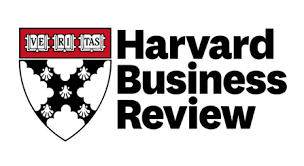
Informed i’s Weekly Business Insights
Extractive summaries and key takeaways from the articles carefully curated from TOP TEN BUSINESS MAGAZINES to promote informed business decision-making | Since 2017 | Week 386 | January 31- February 6, 2025 | Archive

Leaders Shouldn’t Try to Do It All
By A.G. Lafley and Roger L. Martin | Harvard Business Review Magazine | January–February 2025 Issue
Extractive Summary of the Article | Listen
3 key takeaways from the article
- Unlike a company, which can expand capacity to meet increasing demand, a leader is constrained by nature. Many people think they can increase their productivity by working harder. But that, in due course, is a losing game. How leaders can change that?
- Our remedy for the overwhelmed leader comes from an unlikely source: the 19th-century political economist David Ricardo’s theory of comparative advantage – a nation should export those goods (or services) for which it has a comparative advantage over its trading partners.
- A similar logic holds here. Leaders shouldn’t spend their scarce time on activities simply because they are very important. They should do only the things that nobody else in the organization can do nearly as well—if at all. And they should spend as much of their time as possible on them. Need to follow a four-step process in making choices. Remove all tasks for which you lack any absolute advantage. Delegate tasks for which you have little comparative advantage. Take on tasks for which you have a strong comparative advantage. And make sure you have enough time for the tasks that only you can do.
(Copyright lies with the publisher)
Topics: Strategy, Leadership, Comparative Advantage, Productivity
Click for the extractive summary of the articleUnlike a company, which can expand capacity to meet increasing demand, a leader is constrained by nature: As they say, there are only so many hours in a day. Many people think they can increase their productivity by working harder. But that, in due course, is a losing game. They tire, their overall output falls, and they risk burning themselves out and choosing to exit.
In this article the authors explain how leaders can change that. The begin with the perhaps surprising but powerful theory that guides how these two manage their own time.
Our remedy for the overwhelmed leader comes from an unlikely source: the 19th-century political economist David Ricardo. Business leaders most commonly allocate their time by lining up potential tasks according to absolute importance to the organization’s strategy and taking on the most crucial ones until they run out of time. Then they leave the rest to subordinates. Instead they should be guided by Ricardo’s 1817 theory of comparative advantage, still seen as the seminal theory in international trade, which asserts that a nation should export those goods (or services) for which it has a comparative advantage over its trading partners.
A similar logic holds here. Leaders shouldn’t spend their scarce time on activities simply because they are very important. They should do only the things that nobody else in the organization can do nearly as well—if at all. And they should spend as much of their time as possible on them. That is the definition of the authors while leading to win. It was an essential part of the strategic logic that guided them in turning around the organizations they led.
The authors suggest that overwhelmed leaders follow a four-step process in making choices. The first two steps involve getting tasks off their calendars; the second two, putting tasks on. Remove all tasks for which you lack any absolute advantage. Delegate tasks for which you have little comparative advantage. Take on tasks for which you have a strong comparative advantage. And make sure you have enough time for the tasks that only you can do.
show less
Leave a Reply
You must be logged in to post a comment.